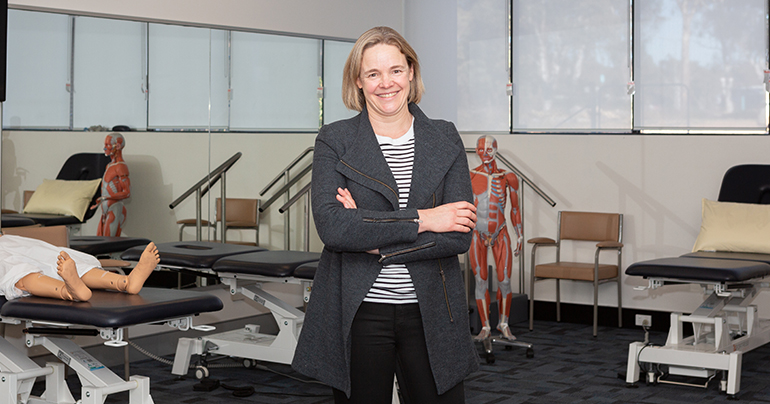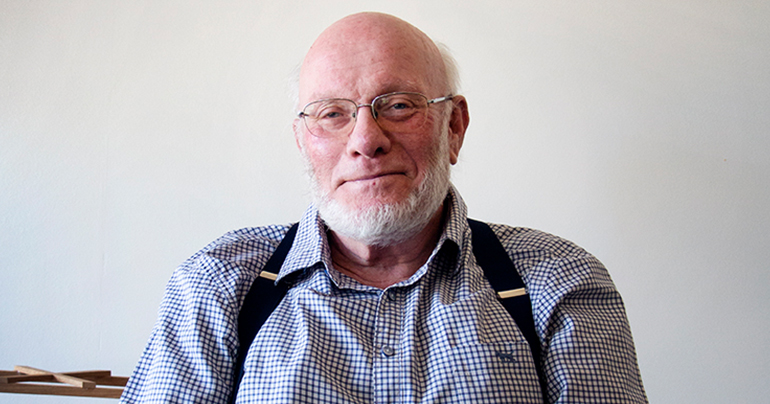Teaching can be its own reward
Published: 12 Sep 2023
Canberra Institute of Technology (CIT) teacher Peter Redfern-Elliot admits students have, over his 15 years in the profession, brought him to tears.
"Tears of happiness," Peter explains, "as I have seen students grow with confidence and knowing I have made a difference to their life."
Peter (Hospitality, Culinary and Tourism), Emma Gorrell (Hairdressing and Barbering), Tony Cowlishaw (Building and Construction Management, Engineering and Design) and Amy Nussio (Allied Health Assistance), all from CIT, have been named as finalists for VET Teacher of the Year at the 2023 ACT Training Awards on 14 September.
Rather than view each other as competition for the main prize, they are championing the value of teaching and are urging more industry experts to consider a career in Vocational Education and Training.
A foundational element to addressing the national skills shortage is identifying and recruiting the teachers and trainers who will be mentors to the workforce of the future. This is what motivates them.
AMY NUSSIO
Amy is an example of a more flexible approach to teaching. She has maintained part-time work as an occupational therapist since transitioning to teaching with CIT in 2018.
"I stumbled across the job, I didn't know what VET stood for," Amy admits. "A big thing I like about the VET sector is how hands-on the training is, it's what we do in industry, so there was no difficulty for me in the transition to teaching. I thought, 'I'm going to be working with these Allied Health Assistants in industry, so I want to train them really well'.
"I am motivated to provide meaningful and relevant teaching because I am passionate about ensuring all people receive the highest quality care. I love seeing the student journey and hearing about the employment outcomes of students. I enjoy the buzz when I speak to students on placement, and they are so proud of the skills they have been able to apply in a workplace.
"The Allied Health Assistant workforce is essential for addressing workforce shortages in the health care sector and we need to ensure that we showcase the quality and industry-relevant training provided in the VET sector. It is also important that we raise awareness about the rewarding VET teaching opportunities available to experienced Allied Health Professionals and Allied Health Assistants in industry."
TONY COWLISHAW
Now in his 70s, Tony Cowlishaw was only 18 when his teachers first suggested he'd suit the profession.
"I didn't believe a word they said, so it wasn't until my late 50s I was talked into teaching by industry to pass on some of my knowledge," Tony says. "It has become something I'm very passionate about and committed to, helping the needs of those who want to listen, learn and advance themselves to reach their potential."
With a professional background in technology and commerce, Tony is now Head of Department for CIT’s Building and Construction Management, Engineering and Design team. At CIT since 2009, does he wish he’d made the move to teaching earlier?
“I wouldn’t be providing the value I am now if I hadn’t had a range of whole different careers leading to where I am today, because I wasn’t even in construction until my early 50s,” Tony says. "What I'm trying to teach my students is that life is a journey and an education. Even if what you're doing now isn't part of your end game, the things you learn and skills you acquire will be beneficial as part of life's journey. Hopefully I can help provide part of that pathway for them to realise who they are and what they want to be."
Tony says one of his main teaching philosophies is consistent engagement with industry to motivate students.
"The more we can expose our students to a different range of techniques, styles and methods of construction, the more prepared they'll be to become part of an effective working team."
EMMA GORRELL
Emma began a hairdressing and barbering apprenticeship at 16, and then continued to support apprentices as she progressed to opening her own salon.
Emma says her decision to become a teacher at CIT 16 years ago "changed my life", and she’s motivated to give other apprentices the same opportunities to progress their careers with recognised qualifications.
"More than ever, to keep our industry growing, we need apprentices to keep coming through the door," Emma says. "Barbering has been my focus for the past few years and I feel very strongly that we have improved the standards in the ACT through our training and Recognition of Prior Learning processes.
"My aim is to get as many barbers recognised for their amazing skills as I can. I have encouraged those working in the Barbering industry to acquire a Certificate III in Barbering and developed flexible training options to meet the ever-changing needs of the industry.
"We know that workplaces and employers are time-poor with training their apprentices and we all want the best outcomes for every student, whether it be a hairdresser or a barbering student. Seeing them develop over their duration with us at CIT is so rewarding, and knowing we can help shape their future keeps me going each day.
"I aim to bring an open mind, a positive attitude, and high expectations to the classroom each day. I believe that I owe it to my students, as well as the community, to bring consistency, results, and warmth to my job in the hope that I can ultimately inspire and encourage my classes each day."
PETER REDFERN-ELLIOT
After 15 years in industry, Peter Redfern-Elliot switched to teaching at CIT 15 years ago, motivated to pass on his real-life experience and insights across Hospitality, Hotel, Travel, Tourism and Events Management.
He's able to incorporate the CIT’s Café, Restaurant and Bar facilities into his training so that students engage in practical learning. But it's developing the soft skills, like boosting student confidence, he enjoys even more.
"I am not just teaching students industry skills and units of competency or qualifications, it also can be changing people's lives," Peter says. "Some of our students have pivoted and are now on a more positive pathway, not only for themselves, but also for their family, their friends, as well as for their community.
"Our training environment provides students with real life situations they must manage as if it was a workplace setting. The importance of this type of learning allows the student to be more job-ready and confident when entering the workforce.
"It provides all demographics of students the same opportunity to learn these skills, whether they are a mature-aged student returning to the workforce, changing careers, and wanting to upskill, or if they are a school-leaver looking for skills to help gain employment."





